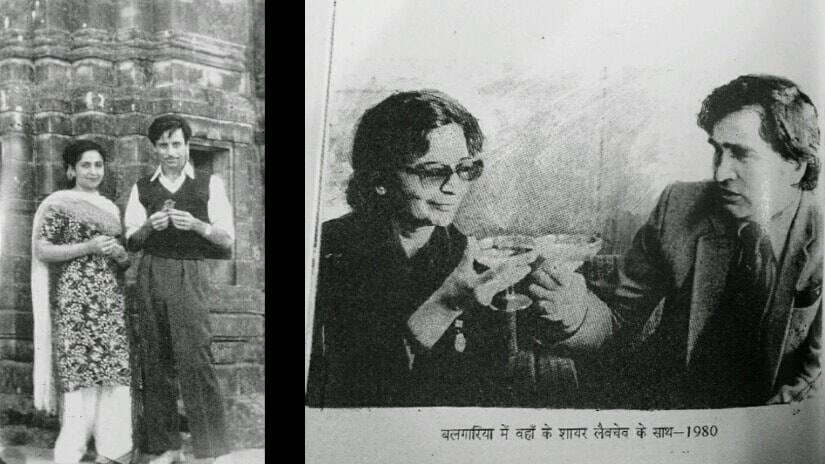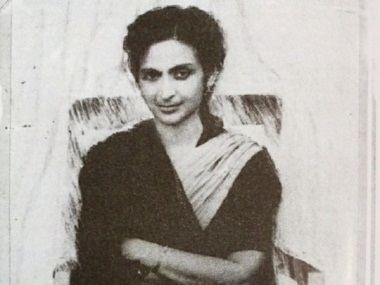The writer Amrita Pritam would have turned 100 on 31 August 2019. Had she been amongst us, how would she have celebrated her 100th birthday? Would she have written a letter to herself, perhaps recalling an episode from her childhood, or penned an essay on the strange dreams and nightmares that trailed her like a shadow through most of her life, or would she have mourned the happenings in Kashmir and woven another Ajj Aakhaan Waris Shah Nu (Ode to Waris Shah)? We can only imagine — but we cannot imagine the way she imagined and envisioned life. Be it a recurring dream, the fear of losing a loved one, an anxiety attack — Pritam found catharsis through words. Raseedi Ticket (Revenue Stamp, 1976), her autobiography, is an album of postage stamps. And each postage stamp unfurls like the story on a postcard. Every story ends without closure, compelling the reader to move on to the next chapter in the hope of getting closer to that promised conclusion. But closure doesn’t come until the last page. Her words, poems, anecdotes, ruminations provoke you to question, but you cannot expect her to provide any answers. For her, questions are universal and objective, but answers are subjective. After all, how many autobiographies begin with a sentence like,‘Kya yeh qayamat ka din hai?’ (Is this doomsday?) *** In the initial pages of Raseedi Ticket, Pritam narrates the story of how her parents met; how a young saint-poet named Nand (rechristened Kartar Singh) was destined to renounce his sainthood for the pleasures and pains of domesticity, and the companionship of a school teacher, Raj Bibi. Just as you absorb Nand and Raj Bibi’s individual histories and how these two lonely souls chanced upon each other on a rainy day — and that too in a den of sadhus — you read about Raj Bibi’s untimely death. (Pritam was 11 when she lost her mother.) [caption id=“attachment_7257351” align=“alignnone” width=“825”]  (L) Amrita Pritam’s mother, Raj Bibi; (R) cover for Raseedi Ticket[/caption] But then, surprise and shock go hand-in-hand when it comes to Pritam’s style of storytelling. She doesn’t allow you to languish on one page for far too long. Whatever be the turn of events, tragic or happy, she eggs you to move on. Her words create an image in front of you and the moment she realises you are hooked, she nudges you to turn to the next page, the next image and the next — like a reel of moving pictures in a bioscope. And she is the one changing the frames. *** Fearless, Pritam’s rebellious streak is evident in the narration of a striking episode from her childhood: one day, she notices that her grandmother keeps three different glasses on a separate shelf in the kitchen. These glasses aren’t mixed with the other utensils. Once she learns these glasses are for Muslim guests, she is mortified. She resolves not to use any other utensil but those very glasses to drink tea and milk. Lo and behold, even her father was blissfully unaware of this detail. Amrita’s protest isn’t a storm in a teacup. From that day on, no utensil in the household is designated Hindu or Muslim. She wonders, with a hint of mischief, if this is the doing of Sahir’s [Ludhianvi] shadow from another birth. Who knew then there would come a day when she would hopelessly fall in love with Sahir? Even if that love story remained unfulfilled. From our archives: The untold love story of Sahir Ludhianvi and Amrita Pritam *** Her memoirs reveal that Pritam was an avid traveller. By her own admission, she never maintained a diary but loved writing during her travels. Some of her fascinating travelogues include her visit to Paris in 1986 for a UNESCO conference where she requested a small change in the topic of the session: ‘Science and Religion Should Go Together’. She wanted the word ‘religion’ to be replaced with ruhaniyat (spiritualism). For her, religions are many and could have limitations but spiritualism is beyond conflicts. Her request was honoured. Be it her interaction with Uzbek women writers in Tashkent, meeting poets and writers in Bulgaria and Georgia, thinking of Hitler’s trial sitting in Munich or listening to the story of a 16-year-old Pushkin’s sojourn with a group of gypsies to Montenegro, Amrita’s travel journal from the 1960s to late 1970s and early-1980s is exhaustive. [caption id=“attachment_7257361” align=“alignnone” width=“825”]  (L) Amrita Pritam, 1970; and (R) in Bulgaria in 1980[/caption] *** A lot has been said about the two men in Amrita’s life — the poet Sahir Ludhianvi and painter Imroz. Of course, these two men did inform and probably influence her thoughts, but they never defined her. To reduce her autobiography to a love story could therefore be belittling. Even her marriage to Pritam Singh at the age of 16 is not delved into by the author. It features as an insignificant fact, though it’s interesting to note she never went back to her previous name Amrita Kaur even after the marriage ended. With Sahir, we all know the famous story of how she would collect the stubs of his leftover cigarettes and smoke them. A passionate lover, she suffers a heartbreak on discovering Sahir’s new love in an issue of Blitz magazine. Sahir’s appearance in her life is more an act of disappearance. It seems as if he knocks at her being, only to tell and warn her that he is not here to stay. Imroz, on the other hand, appears out of a shroud of invisibility and nothingness. But once he enters Amrita Pritam’s life, he never leaves. Even when she passes away, Imroz stays. Interestingly, when Pritam wrote her last letter to Sahir, which eventually took the shape of a book, she had wanted some portions of it to be illustrated. She was working with AIR Delhi in those days, when she heard of a new painter in Bombay by the name of Indrajit (aka Imroz) chitrakaar (painter), who worked at the office of Shama, an Urdu monthly newspaper. It was in Shama’s new newsletter Aaina that Pritam’s ‘Aakhri Khat’ (Last Letter) was published. [caption id=“attachment_7257381” align=“alignnone” width=“825”]  (L) With Imroz; and (R) in Bulgaria in 1980[/caption] One of the most endearing stories that Pritam recounts in Raseedi Ticket is when Imroz drops her home one night after she misses the office cab. She vaguely remembers the year as 1959. Once home, she realises there isn’t enough food she could offer him. So, she splits her share of the roti and places it on his plate. Little does Pritam know then that she would spend more than 40 years of her life with this man and breathe her last in his embrace. Also read: The many loves of Amrita Pritam *** Khushwant Singh once remarked that there was nothing much to Amrita Pritam’s life and that her autobiography “ could be written on a postage stamp”. Maybe. But is it possible to have a letter delivered without a postage stamp? Pritam’s zeal, her sadness, anger, desperation, anxiety, passion, love — all combine into a woman she describes as her beautiful daughter in her autobiography; it almost resonates with Baudelaire’s imagery in ‘Hymn to Beauty’ — a reflection of herself she sets free. Her story, a “revenue stamp”, is an act of deliverance. Amrita Pritam’s father — a poet himself, who wrote under the pen-name ‘Piyush’ — named his first-born ‘Amrit’, another name for piyush (elixir). Blessed with the boon of immortality, Amrita Pritam and her words continue to live and shall for generations to follow.
Be it a recurring dream, the fear of losing a loved one, an anxiety attack — Amrita Pritam found catharsis through words. Raseedi Ticket (Revenue Stamp, 1976), her autobiography, is an album of postage stamps. And each postage stamp unfurls like the story on a postcard.
Advertisement
End of Article


)
)
)
)
)
)
)
)
)



